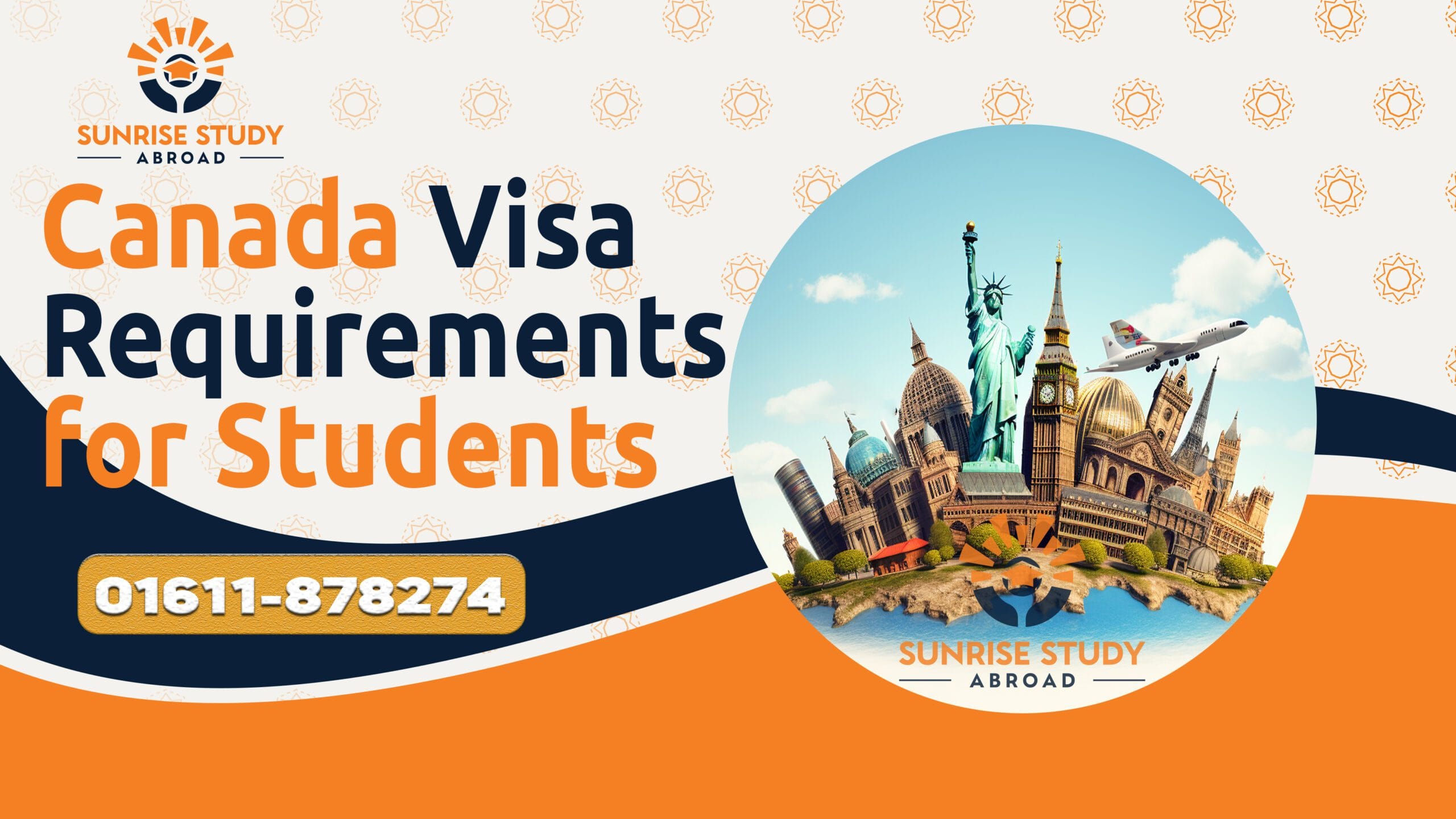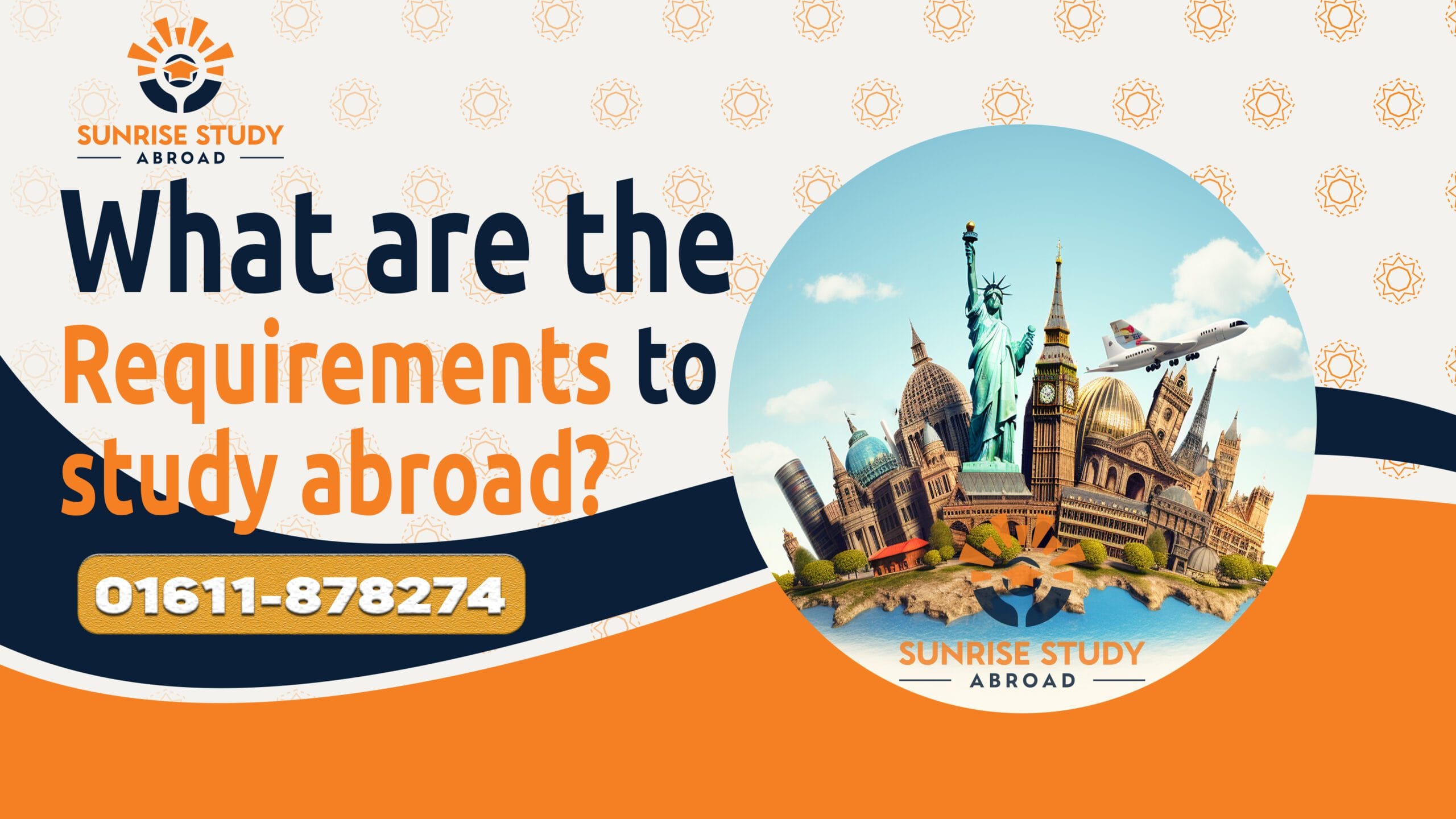Canada visa requirements for students
Canada has become one of the most sought-after destinations for international students due to its high-quality education system, multicultural environment, and welcoming immigration policies. If you’re planning to study in Canada, you’ll need a student visa, commonly referred to as a Study Permit. Below is a comprehensive guide to help you understand the requirements and steps involved in obtaining a Canada student visa.
Canada student visa requirements from Bangladesh
Bangladeshi students aspiring to study in Canada need a Study Permit. Key requirements include a valid passport, an acceptance letter from a Designated Learning Institution (DLI), proof of financial support, and a clean police record. Applicants may need a medical examination and must provide biometrics. Documents should be translated into English or French. Submit applications online via the IRCC portal, paying the CAD 150 fee. English proficiency tests like IELTS are typically required for admission. Apply early to ensure timely processing and prepare thoroughly to meet Canada\u2019s high standards for international students.
1. Eligibility Requirements
Before applying for a Canada student visa, ensure you meet the following eligibility criteria:
- Acceptance Letter: You must have an acceptance letter from a Designated Learning Institution (DLI) in Canada.
- Proof of Financial Support: You need to demonstrate that you can financially support yourself during your stay in Canada. This includes tuition fees, living expenses, and return transportation costs.
- Clean Criminal Record: Applicants must provide a police clearance certificate to prove they have no criminal background.
- Medical Examination: Some applicants may need to undergo a medical examination to ensure they are in good health.
- Intent to Leave Canada: You must convince the immigration officer that you will leave Canada upon the completion of your studies unless you choose to extend your stay legally.
2. Required Documents
Here is a list of essential documents you’ll need for your student visa application:
- Valid Passport: Your passport should be valid for the duration of your intended stay in Canada.
- Acceptance Letter: A letter of admission from a recognized DLI.
- Proof of Financial Support:
- Bank statements for the past four months.
- Proof of a student loan (if applicable).
- Letter of sponsorship (if someone else is funding your education).
- Study Plan: A detailed statement of purpose explaining why you want to study in Canada and how it aligns with your future goals.
- Photographs: Passport-sized photographs meet the Canadian visa photo requirements.
- Immigration Medical Exam (IME): If required, complete the IME with a panel physician approved by Immigration, Refugees, and Citizenship Canada (IRCC).
- English Proficiency Test Results: While not mandatory for the visa, most DLIs require IELTS, TOEFL, or other standardized test scores for admission.
- Police Clearance Certificate: To verify your clean criminal record.
3. Application Process
Follow these steps to apply for a Canada student visa:
Step 1: Receive an Acceptance Letter
- Apply to your chosen DLI and secure an official acceptance letter. Ensure the institution is on the IRCC’s approved list of Designated Learning Institutions.
Step 2: Prepare Your Documents
- Gather all the required documents mentioned above.
- Translate documents into English or French if they are in another language.
Step 3: Apply Online or Offline
- Create an account on the IRCC website for an online application or submit a paper application to your local Visa Application Centre (VAC).
Step 4: Pay the Application Fee
- The student visa application fee is CAD 150.
- Payment can be made online or through other accepted methods.
Step 5: Provide Biometrics
- Visit a local VAC to submit your biometrics (fingerprints and photo). The biometrics fee is CAD 85.
Step 6: Attend an Interview (if required)
- In some cases, the visa officer may request an interview to assess your application further.
Step 7: Wait for Processing
- Processing times vary depending on your country of residence. Check the IRCC website for updated timelines.
Step 8: Receive Your Visa
- If approved, you’ll receive a Port of Entry (POE) Letter of Introduction. Bring this letter along with your passport and other documents when traveling to Canada.
4. Financial Requirements
To prove financial sufficiency, you need to show that you have enough funds to cover:
- Tuition fees: (depending on the program and institution).
- Living expenses: CAD minimum cost per year for a single student, with additional funds for family members if applicable.
- Transportation costs: Proof of a return ticket or additional funds to purchase one.
5. Work While Studying
As a student in Canada, you can work part-time (up to 20 hours per week) during academic sessions and full-time during scheduled breaks. Ensure your study permit includes a condition that allows you to work.
6. Post-Graduation Options
After completing your studies, you may be eligible for the Post-Graduation Work Permit (PGWP), which allows you to work in Canada for up to three years. This is an excellent pathway to gain Canadian work experience and potentially apply for permanent residency.
7. Tips for a Successful Application
- Be Honest: Provide accurate and truthful information in your application.
- Submit Complete Documentation: Double-check that all required documents are included and meet the specified standards.
- Apply Early: Start your application process as soon as you receive your acceptance letter to account for processing times.
- Seek Professional Guidance: If you’re unsure about any step, consult with an immigration consultant or legal expert.
8. Common Reasons for Visa Rejection
Understanding potential reasons for rejection can help you avoid pitfalls:
- Incomplete or incorrect documentation.
- Insufficient proof of financial support.
- Lack of a convincing study plan.
- Failure to meet health or security standards.
- Inadequate ties to your home country.
9. Renewing or Extending Your Visa
If your study permit expires before you complete your program, you must apply for an extension at least 30 days before it expires. You can also transition to other visa categories, such as a work permit, after completing your studies.
FAQs
Q: Can I bring my family with me? Yes, you can bring your spouse and children to Canada. Your spouse may be eligible for an open work permit, and your children can study at Canadian schools.
Q: Do I need a visa if my course is less than six months? If your course is six months or shorter, you don’t need a study permit. However, a visitor visa or electronic travel authorization (eTA) may be required.
Q: What happens if my visa application is denied? You can reapply after addressing the reasons for rejection, as outlined in your refusal letter.
Conclusion
Obtaining a Canada student visa is a structured process that requires careful preparation and adherence to guidelines. By following this comprehensive guide, you can increase your chances of success and embark on your journey to study in one of the world’s most dynamic and inclusive countries.
Student Visa Consultancy firm in Bangladesh Contact number
Reach out to Sunrise Study Abroad for expert guidance on studying in Australia. Call, email, or visit us for personalized support.
- Call Us: +8801611-878274
- Email Us: studyatbd@gmail.com
- Visit Our Website: https://sunrisestudyabroad.com/
- Visit Our Office: https://g.co/kgs/y9vSnZ5
- Follow Us on Facebook: https://www.facebook.com/SunriseStudyAbroadBD
- Subscribe to Our YouTube Channel: https://www.youtube.com/@SunriseStudyAbroad



